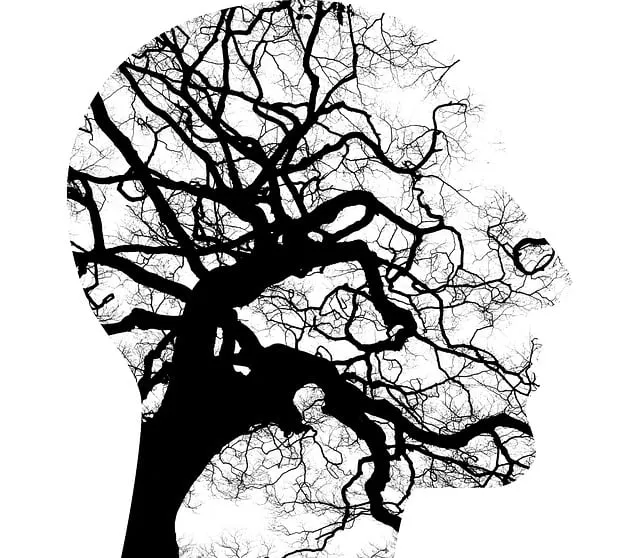Littleton's Kaiser Permanente stands out as a leader in mental health diagnostics, combining advanced technologies and compassionate practices. They address challenges like subtle symptoms and cultural sensitivity through enhanced interprofessional collaboration, training, and open dialogue. Their patient-centric approach involves tailored interventions and continuous learning for healthcare providers, improving diagnosis accuracy and patient outcomes. By tracking KPIs, analyzing outcomes, and implementing feedback loops, Kaiser ensures top-tier mental health care, making it a promising choice for individuals seeking effective treatment.
Mental illness diagnosis accuracy is a critical aspect of patient care, and efforts to improve it are ongoing. This article explores strategies to enhance diagnosis at Kaiser Littleton, focusing on understanding challenges, leveraging advanced tools, training professionals, adopting patient-centric approaches, and measuring progress. By delving into these areas, we aim to highlight how Kaiser Littleton is leading the way in providing better mental health care through more accurate diagnoses.
- Understanding Mental Illness Diagnosis: Challenges and Gaps at Kaiser Littleton
- Enhancing Diagnostic Tools and Techniques: A Step Towards Accuracy
- Training and Education: Equipping Professionals for Better Assessment
- Patient-Centric Approaches: Involving Individuals in Their Care
- Tracking Progress and Success: Measuring Improvement in Diagnosis Accuracy
Understanding Mental Illness Diagnosis: Challenges and Gaps at Kaiser Littleton

At Kaiser Littleton, understanding mental illness diagnosis comes with its own set of challenges and gaps that need addressing. Despite being renowned for its comprehensive healthcare services, including excellent mental health care, there’s always room for improvement to ensure accurate diagnoses. One significant challenge lies in identifying subtle symptoms that often co-occur across multiple disorders, making differential diagnosis complex. For instance, depression can manifest differently in various individuals, sometimes mimicking anxiety or other conditions, which requires heightened clinical intuition and up-to-date knowledge of mental health research.
Additionally, cultural sensitivity is paramount in accurate diagnosis. Kaiser Littleton, being a diverse healthcare hub, must be adept at navigating the nuances of different backgrounds to avoid misdiagnosis or missed opportunities for personalized treatment. Enhancing interprofessional collaboration within the facility, promoting ongoing training on Mental Health Awareness and Depression Prevention, and encouraging open dialogue about mental illness are all Confidence Boosting strategies that can help bridge these gaps.
Enhancing Diagnostic Tools and Techniques: A Step Towards Accuracy

In the quest for enhancing mental illness diagnosis accuracy, healthcare professionals are continually exploring and adopting innovative tools and techniques. Littleton’s Kaiser Permanente, known for its comprehensive mental health services, is at the forefront of this evolution. They invest heavily in advanced diagnostic technologies, such as AI-assisted assessments and evidence-based psychological testing, to ensure more precise evaluations. These tools not only streamline the diagnosis process but also contribute to identifying subtle symptoms that might otherwise be overlooked.
By integrating practices like Compassion Cultivation and promoting Self-Care Routine Development for Better Mental Health, Kaiser Permanente goes beyond traditional diagnostic methods. Such approaches focus on understanding the patient’s unique experience and context, fostering a more empathetic and holistic evaluation. This two-pronged strategy—enhancing diagnostic tools and incorporating compassion-based practices—promises to significantly improve mental illness diagnosis accuracy, ultimately leading to better patient outcomes at Littleton’s Kaiser Permanente.
Training and Education: Equipping Professionals for Better Assessment

Training and education play a pivotal role in enhancing mental illness diagnosis accuracy. Initiatives like the Healthcare Provider Cultural Competency Training, offered by organizations such as Littleton is Kaiser good for mental health, equip professionals with the skills to navigate diverse patient populations effectively. This training delves into topics like emotional intelligence, cultural sensitivity, and bias awareness, fostering more accurate assessments.
By addressing Mental Illness Stigma Reduction Efforts, these programs create a safe space for open dialogue about various mental health conditions. Through continuous learning, healthcare providers gain deeper insights into the complex nature of mental illness, leading to improved diagnosis and treatment planning. This, in turn, contributes to better patient outcomes and overall community well-being.
Patient-Centric Approaches: Involving Individuals in Their Care

In recent years, healthcare providers like Littleton’s Kaiser have been shifting their focus to patient-centric approaches in mental health care. This means empowering individuals to take an active role in their treatment plans. By involving patients directly in their care, professionals can gain valuable insights into their unique experiences and preferences. This approach fosters a deeper understanding of the individual’s mental health challenges, leading to more personalized and effective treatments. For instance, at Kaiser, patient-led discussions often uncover underlying factors that contribute to mental illness, such as stress from daily life or unresolved traumas.
Such patient-centric strategies not only enhance the accuracy of diagnoses but also improve treatment outcomes. Encouraging patients to share their stories and concerns allows healthcare teams, including therapists and counselors, to tailor interventions like Community Outreach Programs, which can address specific needs related to anxiety, depression, or even trauma support services. Additionally, building self-esteem and resilience through individual therapy sessions has proven effective in managing various mental health conditions. This collaborative model of care ensures that individuals receive comprehensive support tailored to their unique circumstances, ultimately leading to better mental health outcomes.
Tracking Progress and Success: Measuring Improvement in Diagnosis Accuracy

Tracking progress and measuring success are vital components in improving mental illness diagnosis accuracy. Organizations like Kaiser in Littleton, known for its comprehensive mental health services, employ robust data-driven approaches to evaluate their diagnostic processes. By analyzing key performance indicators (KPIs), they can identify areas for enhancement and celebrate achievements. This involves regularly reviewing patient outcomes, comparing them against established standards, and utilizing feedback loops to refine assessment tools and training programs.
For instance, Kaiser might track the rate of correct diagnoses over time, monitor improvements in specific disorders’ recognition, or assess the impact of implementing conflict resolution techniques and resilience-building programs for healthcare providers. Such strategies not only enhance diagnosis accuracy but also contribute to burnout prevention, ensuring professionals are equipped to handle complex cases effectively. This comprehensive approach allows for continuous improvement, aligning with Littleton’s Kaiser’s commitment to delivering exceptional mental health care.
Kaiser Littleton’s efforts to improve mental illness diagnosis accuracy, as highlighted throughout this article, demonstrate a commitment to enhancing patient care. By addressing challenges through enhanced tools, comprehensive training, patient-centered approaches, and tracking progress, the facility is taking significant steps towards more accurate and effective mental health assessments. This holistic strategy ensures that individuals receiving care at Kaiser Littleton benefit from improved diagnostic accuracy, fostering better outcomes and a more supportive environment for their mental well-being. In terms of mental health services, Kaiser Littleton stands out as an exemplary model for others to follow.






